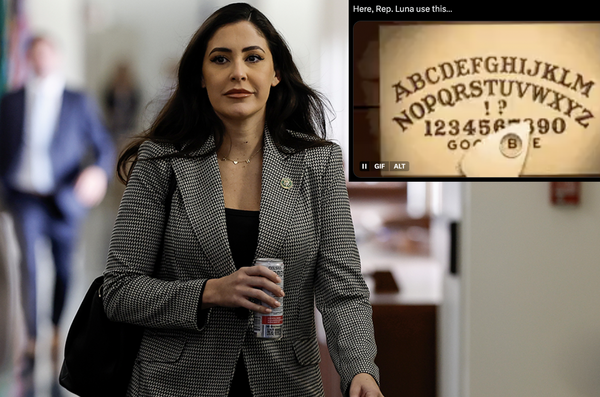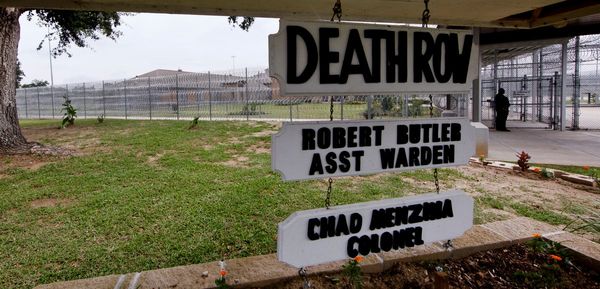
Weeks before his sacking, Manchester United manager Ole Gunnar Solkesjaer reached for a legend in a different sport to describe Cristiano Ronaldo’s role in his team.
"We all have our roles and responsibilities.” the Norwegian said after Ronaldo had scored twice to rescue a point in the Champions League against Atalanta, “Cristiano is a leader in the group, he scores goals,”
"I'm sure Chicago Bulls didn't mind having Michael Jordan either. Sometimes the teams have the players they have and that's why they are Manchester United.”
For a man whose entire tenure at the club often felt like a 1990s tribute act, the reference was decidedly on-brand.
Not that he’s the first to make such a comparison.
Ronaldo, and indeed his long time rival for the title of GOAT (Greatest Of All Time) Lionel Messi, have often been cited as soccer equivalents of basketball’s greatest ever name.
The pair have put up numbers greater than a few other players in history and have dominated the sport for the past decade, in a way that suggests there are parallels.
Not only that they’ve also both been the people to break the deadlock on big occasions, dragging their teams to Champions League finals or league title victories through a moment of individual brilliance.
In the last few seasons, the Michael Jordan comparison has been based more on reputation than results.
As both players reach the twilight of their careers, the influence they have exerted has diminished.
Last year, Lionel Messi was unable to push a ragged Barcelona further than third in La Liga and, as has become almost a tradition, saw his side exit the Champions League via a humiliating 4-1 defeat to Paris Saint-Germain.
Cristiano Ronaldo faired a little better.
His Juventus side only managed a fourth-place finish in Serie A and was dumped out of the Champions League by the un-fancied Porto.
The disappointing performances prompted transfers, Messi headed to Paris Saint-Germain and Ronaldo to Manchester United.
But the changes of scenery have not been the catalyst for success that many might have imagined.
In France, Messi has managed just two goals so far and has been far from his imperious best.
While in Manchester things have been going even worse.
Predictions that Ronaldo’s arrival made United “title favourites” have turned to dust with a series of terrible results that eventually saw the manager sacked.
The poor form has not stopped the Portuguese star has scoring however, he has netted an impressive nine goals so far.
This brings us back to the Michael Jordan comparison. Clearly, the individual ability to drag the team forward is there, as cited by the manager himself, the trouble is these days it isn’t enough to get over the line.
The explanation for why Ronaldo, or indeed Manchester United’s collection of world-class stars, are unable to use their singular ability to win is because a greater more substantial shift has taken place over the past decade.
Soccer is no longer like basketball, a game that individuals can turn, it’s more like NFL, where the playbook is king.
Tactical evolutions

Soccer has always been a game where tactics have been important, from George Graham’s Arsenal offside trap to AC Milan’s Catenaccio, the importance of organisation is well understood.
Traditionally, however, it has focused on the defensive side of the game and on getting players to occupy space effectively.
What has been less well developed is coming up with specific attacking plans to disrupt the opponent.
Teams did work on set-piece routines or passing patterns, but at the highest level particularly, individual brilliance was often the differentiator.
In the mid-2000s, when Messi and Ronaldo first came onto the scene, tactics, especially in the biggest games, focused on counter-attacks.
Coaches like Rafa Benitez and Jose Mourinho won Champions Leagues with sides that looked to seize on their opponent's weaknesses rather than dominate them with their strengths.
In such an environment having a Messi or Ronaldo who could unlock a game with a piece of brilliance helped break the stalemates that took place when two top sides locked horns.
Things changed as the two greats' careers developed, Pep Guardiola’s Barcelona introduced a new style of playing which made possession the key to victory.
It transformed the game and by the mid-2010s ball retention, rather than counterattack, was the dominant tactical ideology.
This dovetailed with the emergence of ‘gegenpressing’(counter-pressing), popularised by Liverpool manager Jurgen Klopp, a possession-based tactic that seeks to aggressively shrink an opponent’s space and create chances through turnovers of possession.
To have either a possession-based or counter-pressing approach requires incredible discipline, players need to occupy the right areas of the pitch. Individual flair can be useful, but not if it is to the detriment of the system.
Fortunately for Ronaldo and Messi, by the time these innovations had become the norm both players were so fundamental they were having teams built around them.
At both Barcelona and Real Madrid, the pair occupied important areas of the pitch where they were the fulcrums around which other teammates worked.
But it is the increasingly sequenced patterns of attacking that are moving the game away from reliance on superstar individuals like Messi and Ronaldo.
The shift to the playbook

The most substantial way soccer has become like NFL is in the rise of pre-planned ‘attacking transitions.’
Elite teams now plan complex systems for disrupting the opposition, player movements trigger well-rehearsed routines designed to result in goals.
Much like an American Football coach has a set of plays based on feigned movements, dummy runs and disguised passes, the success at the top teams in soccer is often about the ability to execute pre-planned attacks.
The signs are that this is only going to become more sophisticated.
Most teams will have a set-piece coach focused entirely on creating routines for one very specific aspect of a team's play.
Liverpool’s addition of a throw-in coach in 2018 was further evidence that patterns for the smallest of elements within the game are being examined.
The benefit of having this exacting attention to detail was visible to all last month when Liverpool destroyed a Manchester United side relying on its ‘Michael Jordan.’
As United pressed in a disorganised manner Liverpool picked them apart at will.
It was a reminder that regardless of how good he might be, Ronaldo can’t compete with a team with a clear system.
If his team are to succeed it needs its own playbook, something that goes beyond getting the ball to CR7.







